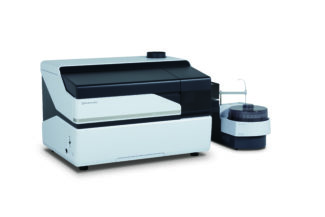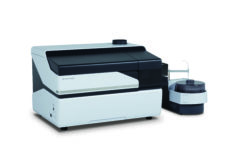ICP-MS
Shimadzu’s Inductively Coupled Plasma Mass Spectrometer ICPMS-2030 supports an extensive range of analysis from trace levels to high concentrations. The optimized internal structure including the newly-developed collision cell enables analysis at sub-ppt level sensitivity by minimized spectral interference and improved transmission efficiency of atomic ions, so that precise quantitation results in elemental impurity analysis become more reliable.
FEATURED PRODUCTS
ICPMS-2030 ICPMS-2030 Shimadzu’s Proprietary Mini-Torch Plasma System Based on Shimadzu’s extensive experience developing ICP emission spectrometers,...
More About ICPMS-2030 
ICPMS-2030 
ICPMS-2030 Shimadzu’s Proprietary Mini-Torch Plasma System Based on Shimadzu’s extensive experience developing ICP emission spectrometers, Shimadzu’s independently developed mini-torch unit offers unrivalled performance and savings. One of the highest costs associated with ICPMS systems is the large quantity of argon gas they consume. However, Shimadzu’s proprietary mini- torch plasma system consumes two thirds the argon gas (10 L/min) as conventional plasma torches. Furthermore, during standby when Eco mode is active, the plasma gas flow and power are reduced to 5 L/min and 0.5 kW to minimize the required gas and electricity; however, analysis can be started immediately with no loss of productivity.
NEED EXPERT ADVICE? LEARN MORE
FULL PRODUCT RANGE


